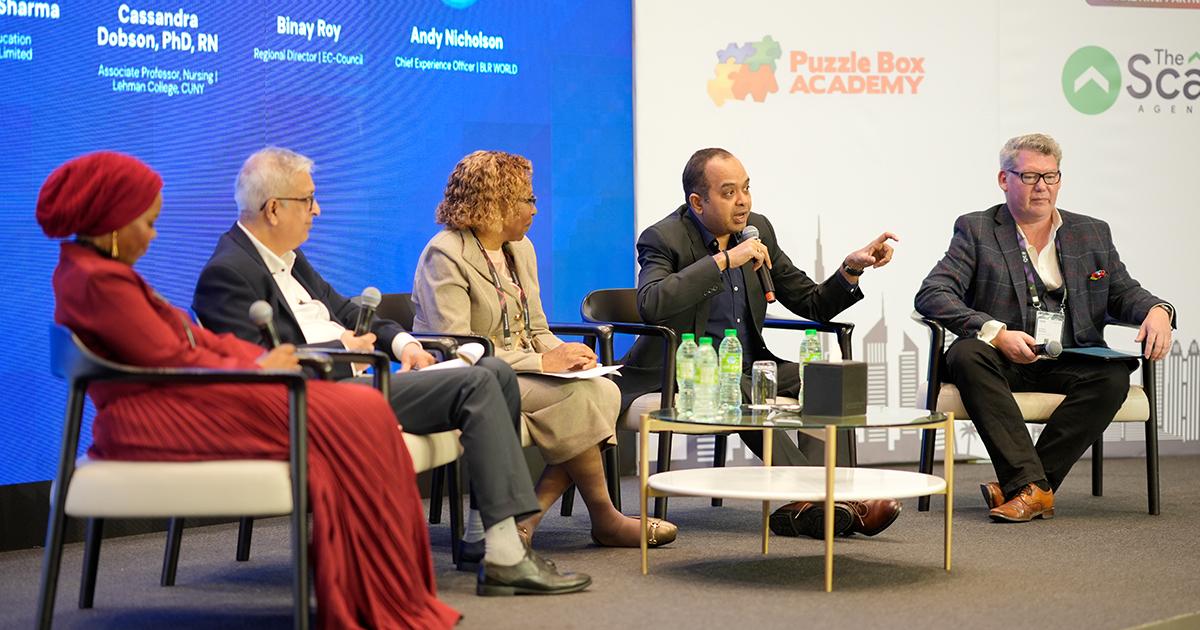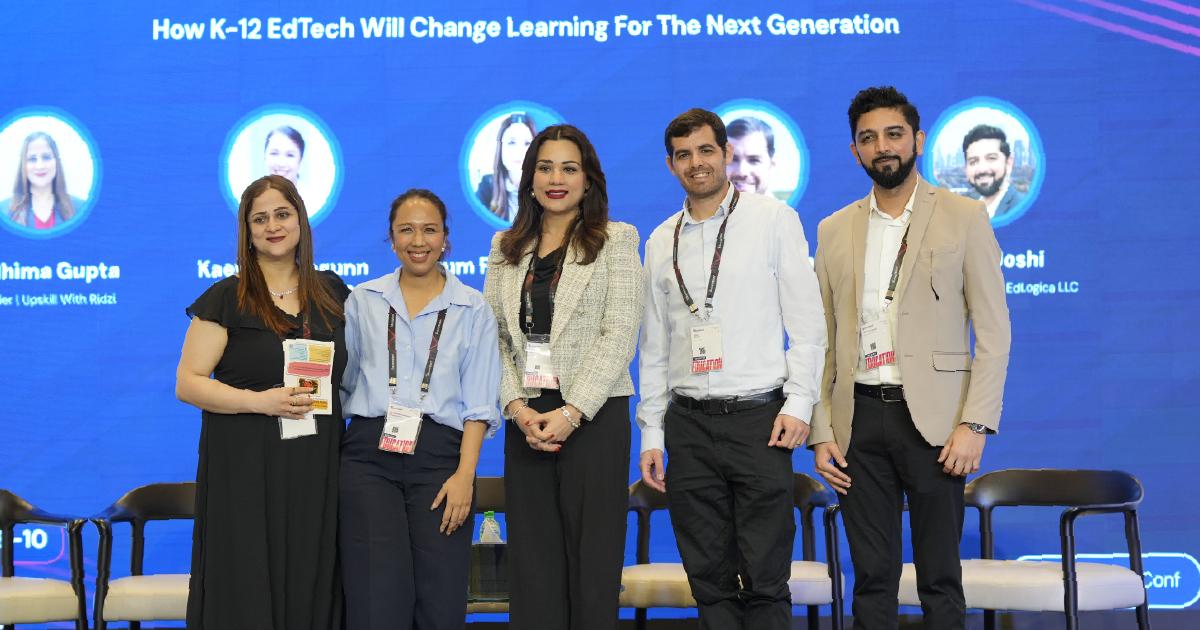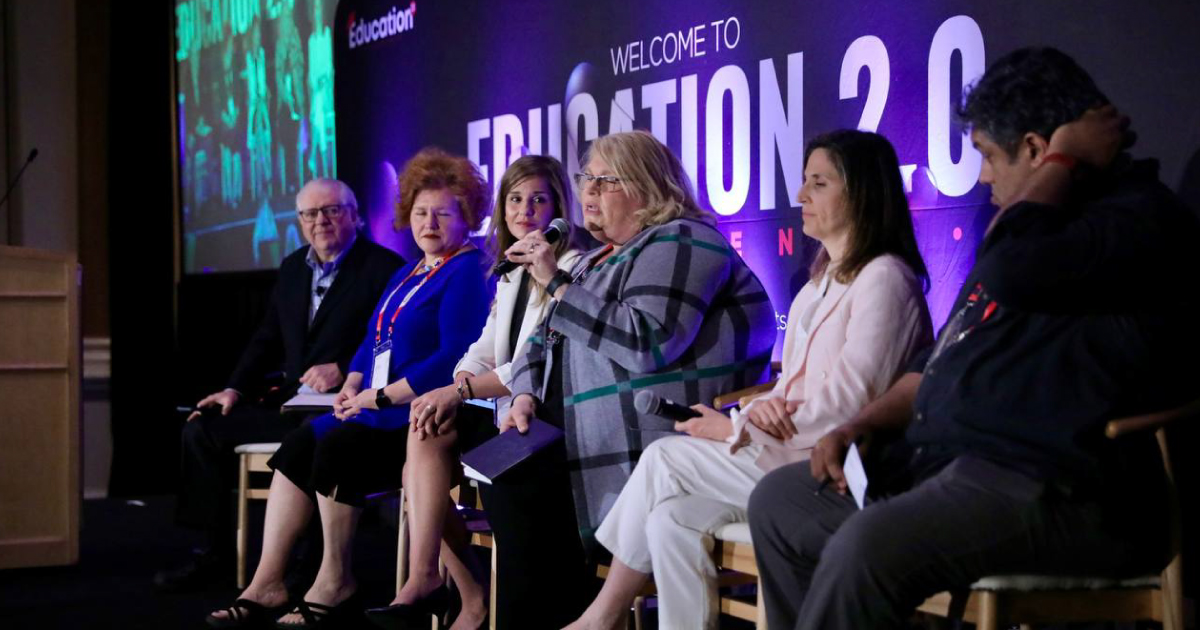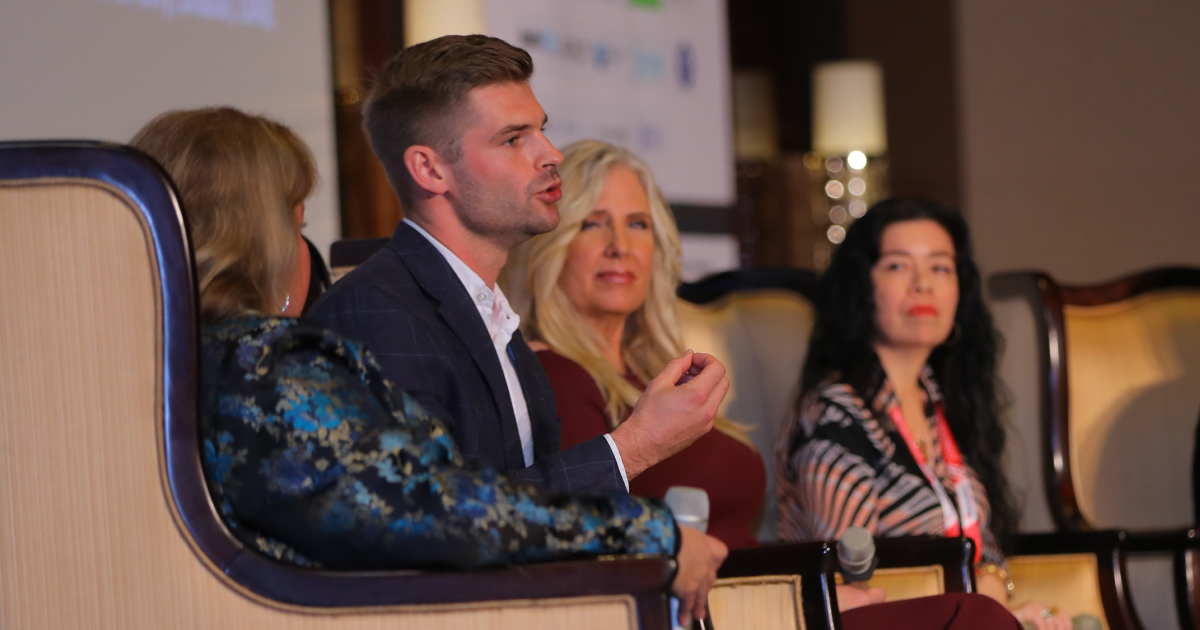
Education 2.0 Conference’s Panelists Discussed How To Prepare Young Adults For Future Careers
Posted on : November 07, 2025
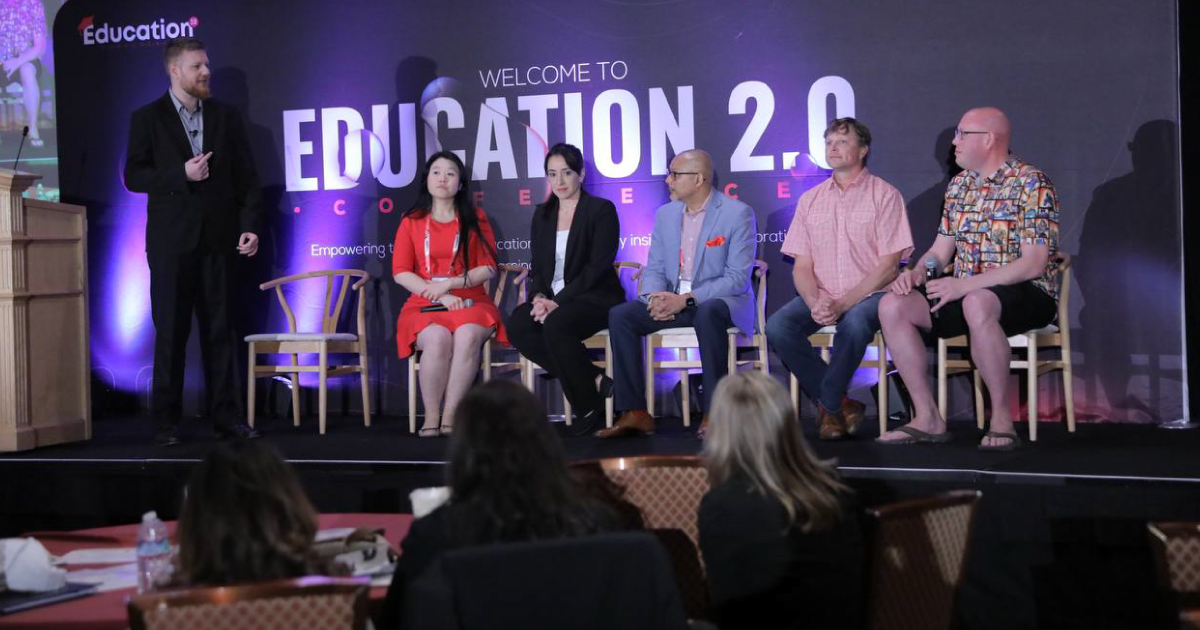
As automation accelerates and innovation continues to reshape the workforce, preparing the next generation for a technology-driven future is no longer a distant concern. It has become a global priority for educators, policymakers, and institutions. Today’s students must develop the mindset, adaptability, and cross-functional skills required to thrive in a world where machines and human capabilities increasingly work side by side.
Recognizing this pressing need, the Education 2.0 Conference, Spring Edition 2023, held in Dubai, created space for a powerful and future-focused dialogue. One of the standout sessions was a panel discussion titled “Preparing Young Adults For The Transformative Future Of Work.” The conversation explored how education systems can bridge the gap between classroom learning and real-world demands, with a focus on student agency, soft skills, interdisciplinary approaches, and workforce alignment.
At our education summit, the session was moderated by Nazli Ersen, the panel featured a lineup of passionate education professionals and innovators. Speakers included Veejay Madhavan, Mariam Hariri, and Alexandra Hoff, whose diverse expertise sparked a rich discussion on how academic systems can shift to better prepare students for jobs that may not yet exist. Together, they explored how education must align with the realities of the future workforce; bridging skill gaps, encouraging entrepreneurial thinking, and embedding emotional resilience.
Let’s unpack the insights shared by some of the leading voices in education. They explored the tools, values, and systems needed to shape a future-ready generation prepared for a dynamic, digitally evolving workforce.
Shifting From Rigid Curricula To Adaptable Learning Models
The conversation began with an explicit acknowledgement from the panelists that traditional education models are no longer enough to prepare students for the fast-changing world of work. Speaking at our leadership conference, Nazli Ersen, CEO and Founder of Nazli Ersen LLC, opened the discussion by pointing out how current curricula, focused heavily on standardized testing and theoretical knowledge, often fail to equip students with the flexibility and critical thinking today's workforce demands.
Nazli emphasized the importance of creating learning environments where students are encouraged to be self-directed and curious, rather than passive recipients of information. She made a strong case for teaching students how to think instead of what to think. This shift, she said, helps build the confidence and problem-solving mindset needed to handle real-world complexity. For schools to truly prepare young people, they must evolve into spaces that nurture collaboration, creativity, and decision-making.
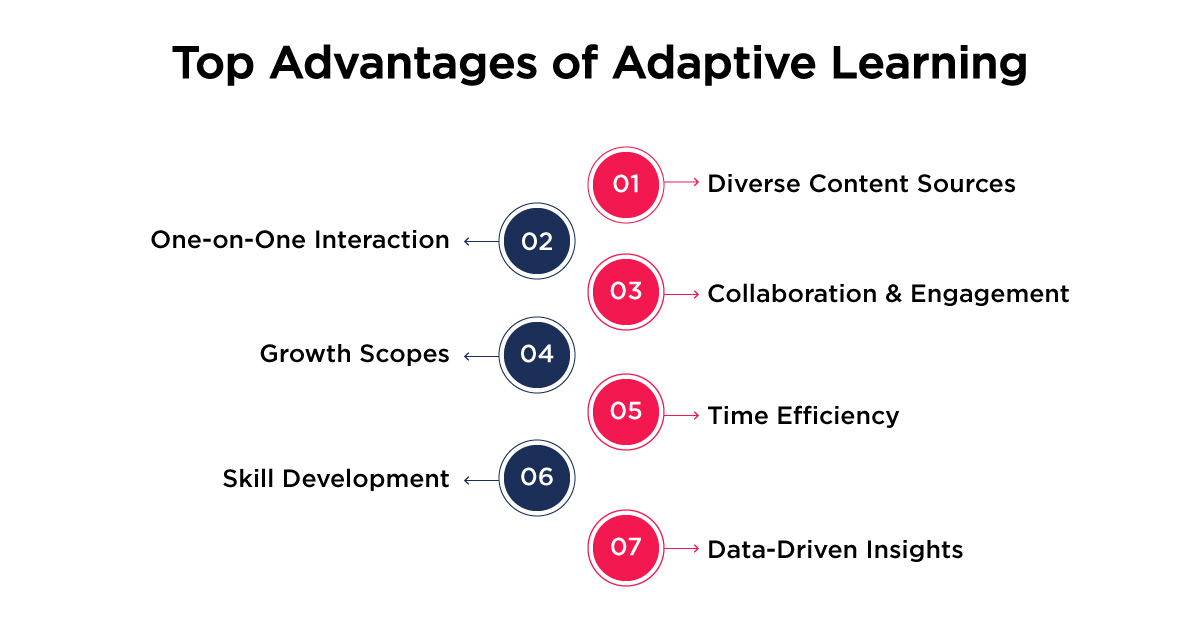
Source: Radixweb
Building Skill Sets For Jobs That Have Yet To Be Invented
The discussion shifted to the widening gap between what students are taught in schools and what the modern workforce requires. With industries evolving at lightning speed due to artificial intelligence, automation, and digital platforms, there is an urgent need to rethink how we prepare young adults for careers that barely existed a few years ago.
Offering a practical lens, Veejay Madhavan, Founder of OulbyZ, emphasized the importance of moving toward a skills-first approach in education. He highlighted that core abilities like problem-solving, digital fluency, and data literacy should be considered essential across all subjects, not just limited to technology or science streams. These are the tools that will empower students to succeed in unpredictable work environments.
Veejay also pointed to the power of experiential learning. Internships, apprenticeships, and hands-on projects, he explained, allow students to apply their knowledge in real-world contexts and develop a stronger understanding of how learning translates into action.
Importantly, he challenged the belief that innovation belongs solely in STEM fields. Every student, regardless of their background, should be equipped with entrepreneurial thinking and digital awareness to stay adaptable and confident in a rapidly changing job market.
Soft Skills As Non-Negotiables In The Modern Workplace
While technical skills often take center stage in conversations about future careers, the panelists at our education conference kept coming back to one key point. Soft skills matter just as much. They might be the real differentiators in today’s complex, fast-changing world.
Mariam Hariri, Senior Instructor at Zayed University, shared compelling insights from her work with university students. She noted that learners who demonstrate strong communication, adaptability, and emotional intelligence often perform better in real-world settings than peers who may be academically stronger on paper. According to her, these soft skills aren’t just nice to have. They are essential.
Mariam made a strong case for integrating empathy-building exercises, group collaboration, and reflective activities into everyday academic experiences. These practices, she explained, do more than build confidence. They help students develop cultural sensitivity, resilience, and the interpersonal skills that employers are increasingly looking for.
She also stressed that institutions have a responsibility to support educators in this mission. When teachers are trained to nurture qualities like self-awareness, feedback management, and adaptability in their classrooms, students walk away with a skill set that goes far beyond technical know-how. They become professionals who can lead, connect, and thrive in a world that values emotional intelligence just as much as expertise.
Empowering Students To Become Self-Directed Learners
The conversation around future-ready education would not have been complete without addressing one of its most powerful drivers: student agency. At the Education 2.0 Conference, Alexandra Hoff focused her remarks on the importance of allowing learners to take ownership of their education.
She emphasized that when students are encouraged to take initiative, question assumptions, and engage deeply with what they are learning, they begin to build essential traits like confidence, resilience, and a growth mindset. These qualities, she noted, are just as critical as technical skills in preparing for the world of work.
Alexandra shared several strategies that can help cultivate this sense of ownership. Approaches like project-based learning, problem-solving activities, and student-led inquiry give learners the chance to lead, reflect, and connect meaningfully with their subject matter. She also encouraged institutions to explore flexible teaching models that allow students to move at their own pace and take time to reflect, rather than simply working toward fixed benchmarks.
She spoke about how preparing students for the future of work is not just about giving them a checklist to follow. Instead, it involves helping them become adaptable, curious problem-solvers who are ready to face change with confidence.

Bridging The Gap Between Education And Industry
One of the key topics explored during the panel at our education conference was how to bring academic learning closer to real-world relevance. Veejay Madhavan emphasized the importance of structured collaboration between educational institutions and industry. He proposed ideas like co-developing curriculum, offering mentorship opportunities, and inviting professionals for guest lectures to make learning more immediate and impactful. He also stressed the value of introducing career readiness programs earlier in secondary education, helping students understand the connection between what they learn in school and the skills needed in the workplace.
Nazli Ersen added to this by highlighting the importance of representation in these partnerships. She pointed out that when students see professionals from a range of backgrounds thriving in different industries, it expands their sense of what’s possible. Representation, she noted, helps students envision themselves in leadership roles and contributes to a more inclusive understanding of success.
Key Takeaways From The Education 2.0 Conference Panel Discussion!
The session on “Preparing Young Adults For The Transformative Future Of Work” highlighted the urgent need to align education with the realities of tomorrow’s workforce. Through insights on adaptability, soft skills, student agency, and real-world learning, the panelists laid out a clear and inspiring vision for how institutions can better prepare students for meaningful and resilient careers. It served as a timely reminder that equipping young minds for the future begins with bold changes in the present.
At our education summit, conversations like these continue to bring together passionate educators, innovators, and changemakers. The Education 2.0 Conference remains a dynamic platform where ideas turn into action, helping to shape the future of learning with purpose and impact. With every session, it reinforces the importance of collaboration in creating educational systems that are ready for what lies ahead.
FAQs
Q. Why are traditional education models no longer enough for today’s students?
A. Traditional models rely heavily on theoretical content and standardized testing, which do not fully equip students for real-world challenges. Today’s workforce requires adaptability, critical thinking, and creativity. Learning environments must shift to nurture those qualities actively.
Q. What does it mean to take a skills-first approach in education?
A. A skills-first approach focuses on building core competencies like digital fluency, problem-solving, and data literacy across all disciplines. It ensures students gain practical tools to succeed in dynamic careers. This approach prepares learners to respond confidently to new, evolving roles.
Q. Why are soft skills considered essential in the modern workplace?
A. Soft skills like communication, adaptability, and emotional intelligence often outperform academic scores in real-world settings. These traits help individuals lead, collaborate, and respond effectively to change. Employers increasingly value them alongside technical expertise.
Q. What type of conversations take place at the Education 2.0 Conference?
A. The conference hosts thought-provoking panels and sessions that focus on reimagining education. Topics include future-ready learning, workforce alignment, innovation, and student-centered teaching. These discussions bring together educators, policymakers, and innovators.
Q. Who attends the Education 2.0 Conference, and what makes the audience unique?
A. The conference attracts a diverse mix of educators, academic leaders, policymakers, edtech innovators, and changemakers from around the world. This variety of perspectives creates a dynamic space for dialogue and collaboration. The global participation ensures that discussions are inclusive, future-focused, and grounded in real-world educational needs.

